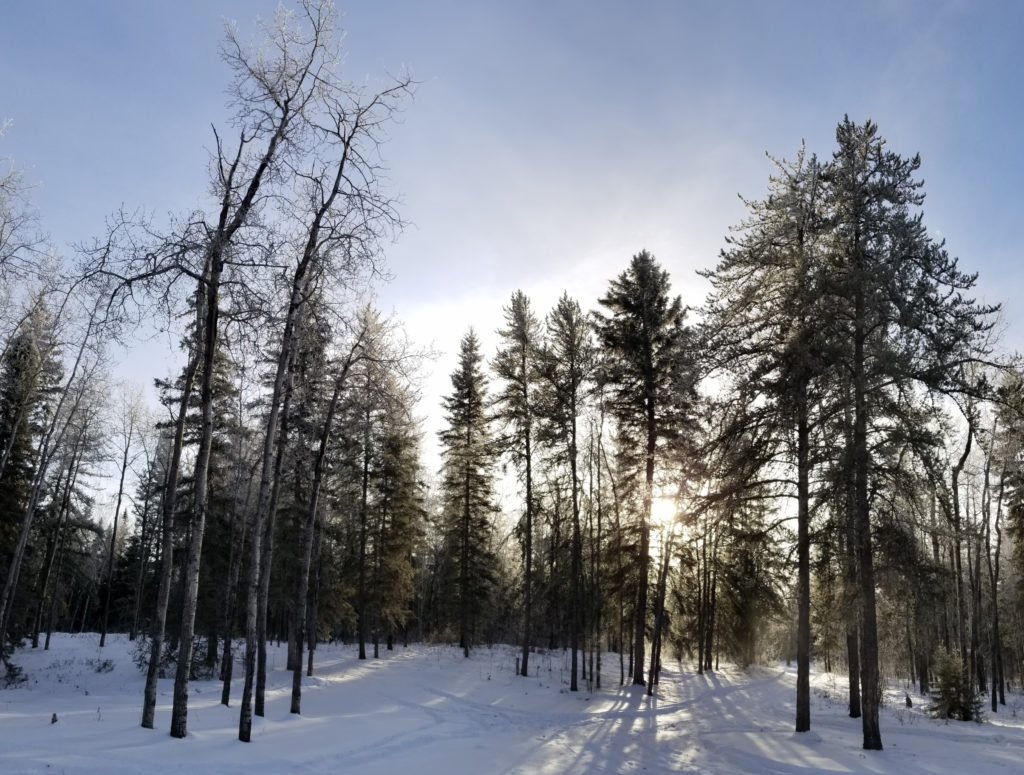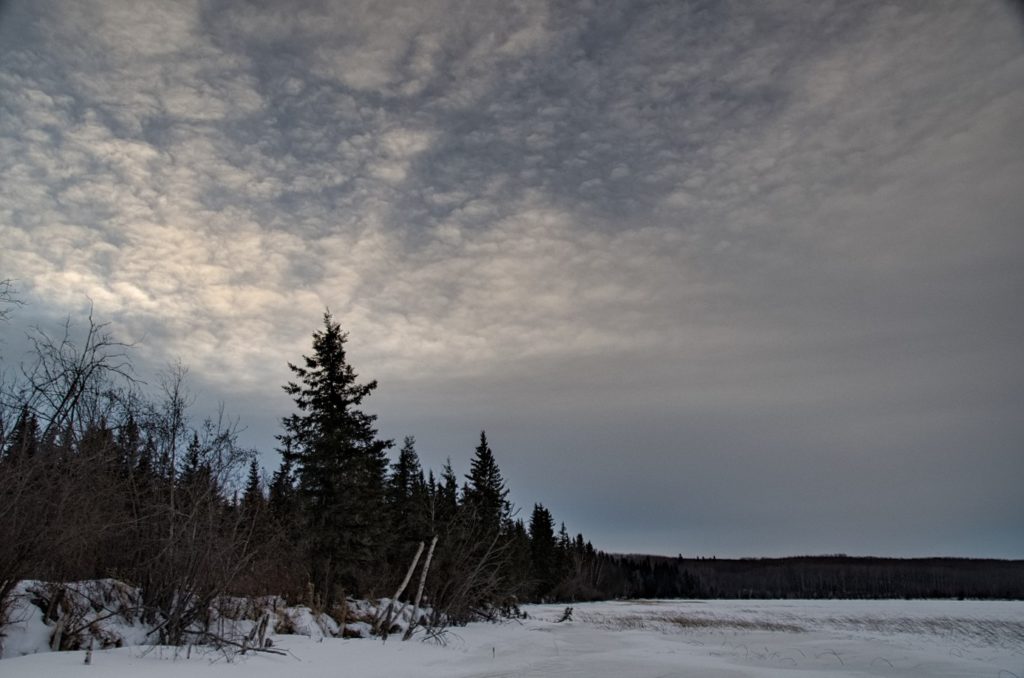New
Notes
Micah 5.2-5a
Bethlehem,
home of David, shall produce another ruler of Israel, who comes from
old stock, like in ancient days.
From
Micah’s prophecy we can read the things that he and the people he
spoke to, were looking for in a Saviour.
To
understand this better, remember that Israel is far from its ‘glory
days’ when David ruled. Of course the ‘good ole’ days usually
get much better after time passes, and one can conveniently forget
the not so good parts of the old days. The downfall of Israel though
is more than just inner decay, and wishful remembrances. The people
have been conquered by their enemies, they serve a foreign ruler, and
they cannot openly and freely worship their God, the God of Abraham,
who with Moses leading, brought them out of slavery in Egypt.
The
prophets have made it abundantly clear that the reason the people
have fallen so hard and deep is that they have not been true to their
God. They have forgotten the deliverance God provided, the food in
the wilderness, the reasons to worship God, the reasons not to take
advantage of each other or their neighbours, or even their enemies.
Instead
they have been sinful.
Well
we know that every person in every generation is a sinful being, and
cannot free themselves. We also believe that God does not put us into
harm’s way, as punishment for our sins. We do not carry forward the
faith so often reflected in the Old Testament, that if we are good,
God favours us, and if we are bad, God punishes us.
We
believe that people are not punished for their sins, so much as
people suffer their (and other people’s) sins.
God
holds us in favour, no matter what. But God does want us to behave
well in response, to reflect for all around us the saving
Grace that God extends to us.
We
are not in exile, least not 75% of the world’s population. Nor are
we ruled by a foreign ruler, least not 5% the world’s population.
Nor are we ruled by an evil and sinful ruler, least not 0% of the
world’s population.
(These
statistics are not scientifically established, they are just wild
guesses, but statements of truth none the less.)
Micah
speaks to a people who are in exile, who need hope of redemption and
deliverance from the horrors of their time. The best promise the
prophet has to hand on to is the promise
of political deliverance.
God
will bring a ruler who will rule like David did.
Until
that ruler is born, though, the God will give the people up to their
enemies.
But
when his mother gives him birth, then, from this small clan among the
people of Abraham, his kindred will return to their homeland. And
this ruler will feed his flock.
This
is the image of David, the Shepherd, leading his people as a nation,
as he did when he was younger and worked as a shepherd for his
father.
The
benefit for this small clan, and for all the people of God, will be
that they will live securely; they shall live in peace, brought by
this ruler.
This
was the hope of the people, as presented by Micah as the promise to
them, which God provided to them, which they had desperate need of.
They needed the hope. They needed the political saviour, or so they
thought.
They
waited, hoped, and fought a revolution or two, hoping to realize this
promise given by God, a promise that fueled them and renewed them and
gave them reason to go on, even in the worst of times.
Hundreds
of years later, they still waited … for
A
political saviour.
The
writers of the Gospels, the scholars of the early Church, for
centuries, understood that this and similar Old Testament passages
were in fact prophecies about Jesus. For Jesus was a descendent of
David, born in Bethlehem, of a small clam, and though the hoped for
political freedom did not arrive, they understood that Jesus brought
a freedom, greater than any political freedom; a freedom greater than
any one time. Jesus brought freedom from chaos and evil, and from sin
and the consequence of being separated from God because we are not
good enough for God.
(Jesus
redeemed us, but God had been doing this all along. Jesus made it
clearly so, obvious … yet it remains a matter of faith, not proof.
How else is God to communicate this message: that God loves us, other
than to demonstrate it as a human being living among us on earth?
So God loves us.
The
challenge of life is NOT to see if we can be good enough to earn
God’s love and Grace. The challenge of life is, realizing,
believing, trusting that God already loves and redeems us, … the
real challenge is to life this, to live out of this love, to live
this love out. How are we doing at that?)
Knowing
that God, as demonstrated by God as Jesus born, living, dying,
resurrected among us … knowing and trusting that God has redeemed
us, is for us, loves us: This is true freedom. This is true peace. A
freedom and peace for all people of all time.
Micah
almost for sure had no idea that so many millennia later we would
place such a hope as foretold in his words; but he would probably not
mind either.
Even
given this hope, promise and real peace provided by Christ, after
weeks of stress and late nights, horrors of what is, and enemies that
want me dead and gone,
I still need sleep. So a nap.
A
peaceful nap in the wilderness, in warmth, with freedom to ski, take
photos, write, and work to make life better … all in all to live
well, despite my enemies’
evil wishes.
But
one human body is only able to do so much for so long, and then it
also needs rest, peace, recovery … and hope that God will end also
these trials and tribulations brought on by my enemies; lies and
their ancient need to scapegoat instead of taking responsibility for
their own sin. It ruins lives, corrupts the youth and children and
burns a wide swath of destruction through the community, church and
far beyond.
So
while some will look for political freedom, a benevolent ruler, which
would be wonderful, I am thankful already for a bit of sunlight, a
bit of warmth, and a bit of peace … all which make for a small
opportunity to take a short nap.
I’ll
leave that for you to calculate how exactly that fits in the notes
for Micah.
Psalm
80.1-7
The
people are in trouble, grave trouble, as people are of every age.
It’s a matter of whether they know it or not.
So
they cry:
Restore
us, O God. Let your face shine upon us, and we shall be saved.
It is a
refrain, and a refrain for all time, whether we know we should be
singing it at all, whether we know we should be singing at all.
The
refrain becomes most poignant in juxtaposition to the troubles of the
people. Still on its own it bears noting that to have God’s face
shine upon us is quite the experience.
Most
everyone can remember a time when they felt the warm sunshine
streaming down and warming one’s face. Imagine how good that feels
on a cold winter day, when the sun only peaks up above the horizon
for a few hours each day. Imagine that storms and snow and slush have
filled the skies, days, and roads (streets for city dwellers) and for
a time, the sun shines free, welcomed and warm … and for those few
moments everything is alright. All is well in the world.
Now take
that memory and transposed it into the key of G for God, the key of C
for Jesus Christ, the key of S for the Holy Spirit …. While God’s
face is hidden from us, we languish and no matter the circumstances
of our lives, we find no joy, no purpose, no meaning for a life, for
a year, for a day, for a moment. All is lost. Stretch this to time
enough to make it the only memory that lives vivid in one’s mind,
and the hope that sustains one disappears. God has deserted us, or so
we experience life at that time.
Then
enter on to the scene of our lives played out on a stage for all to
see: God’s face, shining down on us … and all is transformed …
there is no lack of joy, purpose and meaning for our lives. God is
present: All is well. All is well. All manner of things are well.
[Thank you Julian of Norwich.]
This
reminds me constantly of the Irish blessing: … XXXXX
May
the road rise to meet you,
May the wind be at your back,
May
the sun shine warm upon your face
May
the rain fall gently upon your field,
And
may God hold you in the palm of his hand.
And
the prayer:
may we be just warm enough to enjoy
the snow, with just enough to eat not to treat each other as hungry
animals.
XXXX
This
refrain for the Psalm is quite the
refrain, for the 4th Sunday of Advent. It ought to be sung well.
Clearly as the refrain, not only in the Psalm recitation/singing, but
throughout the service:
Restore
us, O God. Let your face shine upon us, and we shall be saved.
For this
is the refrain of Advent: our hope is in God, in the person of Jesus
once born on earth as one of us, and yet to return to earth. This is
the hope of all hope, the basis of all our hope. We bask it this hope
… especially when the world challenges us with every form of
disaster and destruction.
The
destruction is, like a good Psalm, not detailed, not so specific,
that it fits only one time. It is a song of the congregation for
generations. But the trouble of the people is not displayed as
inconsequential.
God’s
anger fumes against the people. That is not just God deserting the
people but remembering their sins and letting them suffer all the
power of God’s anger.
They
have bread of tears, bowls of tears to drink.
They
are the derision of their neighbours and their enemies have not only
won, but scorn their very existence.
But
the hope is there: Our prayer is that God will find the strength to
come as a saviour to free us from our enemies’ scorn and our
neighbours’ derision.
The
good shepherd arrives. Remember how David led the people?
Now, again we like dumb sheep need a
saviour again.
Don’t
we always?! But don’t we especially also this December, even this
4th
Advent, this 23 December?
You
can fill in what is called news. It is seldom if ever New, but the
same old, old repeated ad nauseam
the troubles of people, as in every generation … but it is our
trouble, old
troubles presented to us as new. And if you live through a disaster,
it is new to you, so there is that: The troubles are new to those who
suffer them. And we cannot healthily dismiss the horror and need of
those brothers and sisters who suffer troubles. Living through
troubles is what binds us humans together into communities of life,
instead of communities of hell, blaming, complaining, and
back-biting.
And
is it not in the face our particular kind of trouble this December
23, that we need to sing aloud for all to hear:
Restore
us, O God. Let your face shine upon us, and we shall be saved.
I
could tell you the troubles I have been given, thank you very much to
all those who lie about me, but the interest for the congregation is
not my troubles, but our troubles
in the midst of which, Jesus appears, God’s face shines on us, and
the Holy Spirit delivers us.
More
to come on Hebrews and Luke, the Magnificat.
Hebrews
10.5-10
Hebrews
is a letter written to people of the God of Abraham, Isaac, Jacob,
Moses, Elijah; a people of the ancients, the Law and the Prophets.
They are people of the Temple, who bring their sacrifices to the
altar. The blood life of the animal sacrificed, replacing their
blood, brings God’s favour. It is an acknowledgement of one’s own
sins and the need to be accountable for them before God. Their own
sins, before God (like ours also) requires the life of the sinner to
make payment, so grievous is even just one sin for it separates one
from God, which is to be dead, even if one is still walking.
Instead
of sacrificing people,
an animal’s blood-life stands in for the human. Human sacrifice God
does not want. God made this obvious in God’s interruption of
Abraham’s sacrifice of his son Isaac on the altar on the mountain.
No more child sacrifice. No more human sacrifice. But animal
sacrifice stands in for human sacrifice.
The
temple, with its institution of priests, and power, and money, and
laws developed this far beyond simple sacrifices into what many
called an impossible demand placed on the people. If the priests
wanted to condemn someone of a law, it was always possible, for no
one could keep all the complicated, sometimes even contradictory
laws. Keeping on the right side of the law did not demand compliance,
but the outward appearances and currying favour with those with
enough power to assure one was never charged with breaking the law.
Enter
Jesus into this. The letter to the Hebrews, in perfect imitation of
the people of power’s obfuscations of the law, sets out in the
lesson for Advent 4 that Jesus ends the temple sacrifices and
institutes that, by God’s will, Jesus was the last sacrifice, the
last blood-life required by God to make things right between humans
and God.
So
we are, forever, made right with God, by the sacrifice of one human
who is also God, Godself. As it always was and is and will be: only
God can set things right between us and God. Only God can make it
right between you and God, between me and God. There is no one who
does not sin, each moment all one’s life. There is no one who can
make up for even one
seemingly innocuous sin. There is not ‘grand gesture’ that any of
us can perform or undergo to make up for even one sin, yet alone a
lifetime’s sins,
or a seemingly severe sin, like murder by suicide or attempted murder
by suicide. There is no ‘grand gesture’ that makes us right with
God, like ‘coming to Christ’ or believing with all one’s heart,
or repenting, or devoting one’s life to God, or confessing and
making atonement or making things right with other people. There is
not even getting baptized. Baptism is God’s act, a sign for us to
remember that the one baptized, specifically, has been made right
with God, by God, by Grace.
That
is to say:
God does it solely because God chooses, irrespective of what we may
or may not have done, thought, believed, chosen.
Which
is exactly what Hebrews says today: “it
is by God’s will that we have been sanctified through the offering
of the body of Jesus Christ once for all.”
There
are lawyers, and even myself a philosopher and theologian, who can
decipher how the earlier passage is used to arrive at this end. But
it is not logical, A + B then C, which bring us to G, for Grace.
Christ
speaks to God
A:
in the words of the Old Testament prophets clearly stating that God
does not want or desire burnt offerings and sacrifices.
B:
Instead God has prepared a body for Jesus.
C:
And this is God’s will.
Put
together simply by juxtaposition, and attributed to Jesus with the
conclusion clearly made that the last statement C was intended to
apply to B, was intended to counter A.
What
seems logical lacks the basis: Jesus is not even quoted here as
having said these separate things together, nor do the Gospels. But
that is the illogic of a religious statement.
We
believe the result. But no reasonable person would accept this
argument as valid or helpful or significant.
But
the writer of Hebrews presents it. The writings came to be
authoritative in the early Christian church and it is included in the
Canon, the Holy Scriptures. And we use it in our lectionary, logical
and sound or not.
One
of the many significant things to note is that this passage reminds
us that we humans always want to be the ones in control of our
relationship with God. We go to all ends to make it happen, and hide
from ourselves that we are trying to wrestle control of our lives
from God. That is the root of all sin, to try to displace God in
God’s universe and in our lives as creatures in that universe …
creatures who by our very nature are in a relationship with God,
whether we like it, admit it, or deny it. And that relationship is
determined wholly by God; including that God has given us freedom to
choose to participate in that relationship of blessing, or not. Thus
theologians have always worked at trying to explain how our freedom
to choose fits together with God determining everything. Explanations
run the gamut from God determines even our ‘free choice’ (there
is no real free choice) to our free choice (given by God) undermines
God’s power forever thereafter and we really do control the
universe and our relationship with God,
… and the explanations run the gamut using
almost every possibility in between.
Luther
landed, with many others, calling such matters, matters of faith,
dealing with them as paradoxes. We are simultaneously both saints
(God’s choice) and sinners (our free choice).
For
Luther then (though he was not completely consistent about this
either) God chooses to save us (through Jesus’ sacrifice); yet we
have the free choice to separate ourselves, not only temporarily but
permanently from God.
This
is called our sinful, prideful
insistence on sinning against the Holy Spirit – never too exactly
defined, which would have the ugly consequence of giving avenue to
evil people to lord it over others that they have sinned worse than
any other and (by the determination of these evil people) the sinner
is condemned and can be without consequence separated from life
(killed, but it is not murder. Which of course still happens all the
time under many guises, also in Canada to completely innocent people
– open your eyes!)
Which
is to say: the logic of it is not what is significant.
What
is ultimately the most significant thing in all of life …
the thing that really matters is simple:
we rely solely on God’s Mercy, Grace,
and Love is;
we can and ought to reflect that Mercy, Grace, and Love in our lives,
for ourselves, for our neighbours, and especially for our enemies.
Whether we do or not, does not change God or God’s relationship
with us, ours with God. It changes us, and it either gives life or
robs life … from us, from our loved ones, from our neighbours, and
from even our enemies.
So
choose: do we want today, to give life, or take life!
God
gives you and me the ability to make that choice each day, each
moment, and the consequences are REAL.
But
Jesus’ story is God telling us, that God alone determines our
relationship with God. So stop the futile and life robbing
behaviours, beliefs and condemnations that sacrifice others (and
ourselves) as if that were going to make things right between any of
us and God.
That’s
God’s work, done, accomplished, for ever,
and for everyone.
Get
on with living, and living well … no matter what else is our life.
For
that is what God created us to be and do:..
To choose to love, ourselves, our neighbours, and especially our
enemies; for that is to love the Lord our God with all our hearts,
our minds and our strength.
So
we cry:
Restore
us, O God. Let your face shine upon us, and we shall be saved.
Luke 1.39-45- (46-55)
A visit
It is just a visit with a relative:
Mary, pregnant before she is married, heads to the hills to see
Elizabeth, wife of the one of the priests. Elizabeth is pregnant as
well and at the sound of the guest’s greeting, her fetus leaps in
her.
Elizabeth cries out, and exclaims (ok,
how did she know already that Mary was to
give birth to God’s own son, the saviour of the universe, but it’s
a story, so not all of it is going to make all the logical and
logistical sense of an historical account. This is an account of the
purpose of God. So of course Elizabeth knows Mary’s son will be
their saviour!)
Surprise at Jesus’ visit
Elizabeth cries out and exclaims that
Mary is blessed among women and her son is blessed as well. Elizabeth
is more than a bit astounded, that Mary, the mother of her Lord, has
come to visit her!
We ought to be so surprised that Jesus
comes to us, every day, every minute. For what do we deserve but
God’s condemnation! But we do
not see Jesus, even standing beside us.
Or we are so used to Jesus’ presence
with us that we behave like we are bored with it, as if nothing
significant were to come of God standing with us, face to face,
shoulder to shoulder. Gracing us with God’s presence, promising us
that all will be well … even when there is nothing that is well at
all to be seen or known. For when God is with us, already all things
are well, all manner of things are well.
For Elizabeth understands that Jesus
(Joshua in Hebrew, meaning saviour) is indeed God’s son, our
saviour; this infant is the boy that will grow to be the man who will
save us all …
No More Scapegoating
And Jesus
will make it obvious that we do
not need to sacrifice anyone else anymore; no more scapegoating.
All this is astounding
Is unusual
Is unique.
But
Then
Mary
Sings a song.
But as all songs of faith well composed
and well sung
This is
REVOLUTIONARY
Not just that God inspires us to revolve,
to repent, to turn about and follow Jesus, instead of walking our own
way and demanding that God follow us.
This is revolutionary, as in
More than a few oppressive rulers have
prohibited the use of this song.
JOY
The start is fitting.
Mary’s spirit rejoices. What better way
to start singing of God’s presence in our lives.
THE
LOWLY … GOOD NEWS
Mary realizes that God has taken a turn
from power to the powerless.
God looks to the lowly servant, Mary,
caught pregnant before being married.
And she expects to be called great, not
for what she has done, but for what God has done to her.
This God is not the God of judgment that
so many people fear without love. This is the God of mercy from
generation to generation.
God has great strength, and chooses to
show it …
THE
MIGHTY, THE OTHER KIND OF GOOD NEWS
But not to build up or sustain those with
power and wealth, and pride,
But to scatter them with their thoughts
of how great they are, thoughts so mistaken that they are just plain
foolish, even if they carry their own day, or seeming carry the day
until God scatters their thoughts and meager accomplishments as if
they were seeds of weeds that are despised by all who see them grow.
The rulers are replaced.
And this causes many unjust rulers to
prohibit, under severe punishment, the singing or use of this song.
But to whom does God go?
Or from our perspective, to whom does God
come?
God lifts up the lowly.
God feeds the hungry, with
not just cheap food, but the good stuff, the nourishing food that
makes for health and good life.
But
The
Rich
God sends away empty handed.
This revolution changes all
power and privilege.
And those of us caught in the bottom of
injustice can sing
Can sing loudly, for all to hear,
That God has come,
In Mary’s and Elizabeth’s day God
comes to Israel, today to us, to
whomever and where ever we are.
God comes to us keeping the promises he
made to Abraham, for we also are
By grace alone
Counted
Among Abrahams’ descendants
Forever.
God claims us, and makes us worthy of
good food, good life, fair treatment, and great hope.
Be careful
Using the Magnificat
can make life changed, can change life, can bring us down if we are
powerful, proud, and wealthy.
But it brings up those of us who are
humble out of necessity and position, wise but poor,
Who must count on God’s grace to
survive each day.
For our good honest labour has not netted
us luxury and privilege, so that we can rest instead of working to
survive the
Challenges
Whatever they are:
Cold
Bitter cold
Injustices
Enemies that want vengeance for things we
never did.
Enemies that know nothing of who we are,
except that they hate us and want us dead.
Coworkers who are corrupt, or abusive, or
mean, or haughty and proud, or self-righteous and judgmental, or
self-declared entitled. OR
the challenges of
Flood
Famine
War
Addictions
Storms
Earthquakes
Global Warming
Disappearing fish, species, glaciers,
clean water, honest people, friends … children
Cancer and other life taking diseases
Bad Genes and simply dirty jeans
Parents who need more than we can give,
children who are almost on their own.
Grandchildren who cannot seem to live a
life that is not confused and desperately chaotic.
Spouses who abuse and take everything we
have to give and more.
Institutions that are corrupt and
decaying, destroying people caught in their downward spiral.
Or plain Evil, in so many guises,
tempting us to be God, and to try (futilely) to make our own lives
good enough for God.
Save us we cry, Save us we sing.
From all this we need to be saved, for we
cannot save ourselves, so we cry
Restore us, O God. Let your face shine
upon us, and we shall be saved!











